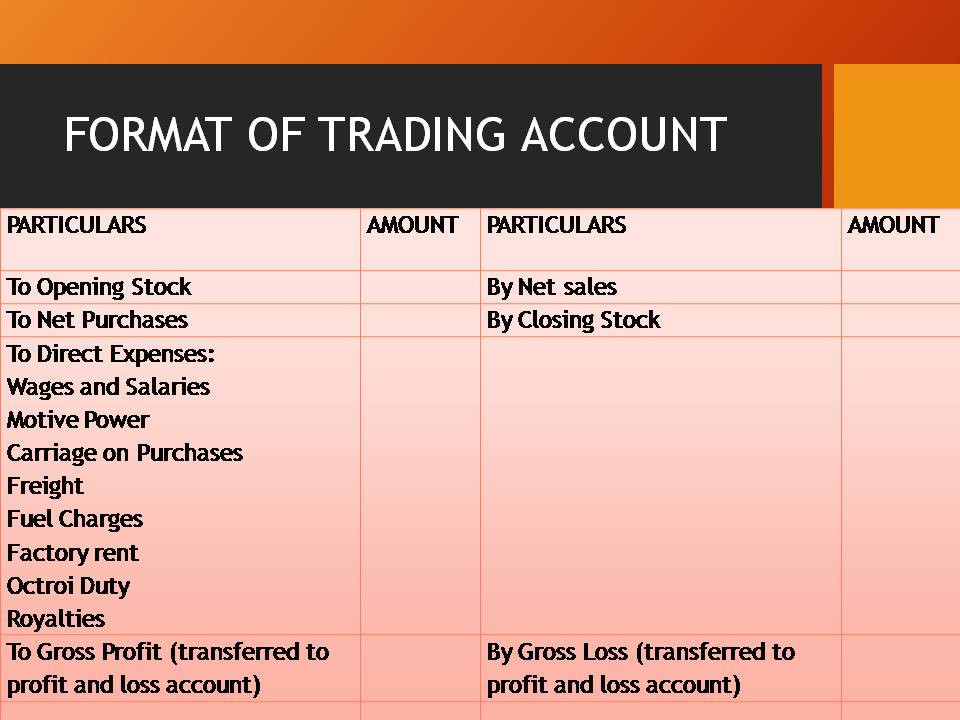A trading account serves as a crucial tool for individuals and businesses engaged in financial markets. It provides a gateway to various investment opportunities, allowing traders to buy, sell, and hold assets like stocks, commodities, currencies, and more. Understanding the purpose and functionalities of a trading account is fundamental for those venturing into the realm of trading. In this article, we will delve into the importance of a trading account and how it facilitates market participation.
Table of Contents
- What is a Trading Account?
- Types of Trading Accounts
- Opening a Trading Account
- Trading Strategies and Execution
- Risk Management and Margin
- Analyzing Trading Account Performance
- Closing a Trading Account
1. What is a Trading Account?
A trading account is a dedicated financial account that enables individuals or businesses to conduct various buying and selling activities in financial markets. It acts as an interface between the trader and the market, facilitating transactions, tracking performance, and managing investments. Through a trading account, traders can execute trades based on their investment goals and market expectations.
2. Types of Trading Accounts
There are different types of trading accounts tailored to cater to diverse trading requirements:
- Individual Trading Account: Designed for individual traders.
- Corporate Trading Account: Catering to trading needs of businesses and corporations.
- Margin Trading Account: Allows traders to leverage their positions using borrowed funds.
- Online Trading Account: Web-based platform for executing trades in real-time.
- Managed Trading Account: An account managed by a professional trader on behalf of the account holder.
3. Opening a Trading Account
Opening a trading account typically involves a few essential steps:
- Choose a reputable broker or financial institution.
- Submit the necessary identification and financial information.
- Read and sign the account opening documents.
- Deposit the required funds to start trading.
4. Trading Strategies and Execution
A trading account allows traders to employ various strategies based on their trading goals:
- Day Trading: Frequent buying and selling of assets within a single trading day.
- Swing Trading: Holding assets for a few days or weeks to capture short-term market movements.
- Position Trading: Long-term trading with a focus on major market trends.
The execution of trades involves analyzing market data, identifying opportunities, and placing orders through the trading account interface.
5. Risk Management and Margin
Risk management is integral to successful trading. Trading accounts provide features like stop-loss orders, take-profit levels, and margin trading to manage and mitigate risk:
- Stop-Loss Orders: Set predetermined price levels to automatically exit a position to limit potential losses.
- Take-Profit Levels: Set specific price targets to automatically sell an asset and secure profits.
- Margin Trading: Trading with borrowed funds, leveraging one's trading capital.
6. Analyzing Trading Account Performance
Evaluating the performance of a trading account helps traders gauge their success and identify areas for improvement. Key metrics to assess include:
- Profit and Loss (P&L) statements
- Win-to-loss ratio
- Return on Investment (ROI)
- Drawdown
7. Closing a Trading Account
Should the need arise, traders can choose to close their trading accounts. This involves:
- Selling all open positions.
- Withdrawing any remaining funds.
- Contacting the broker or financial institution to initiate the account closure process.
Key Takeaways
Trading accounts are essential tools for participating in financial markets. They provide traders with access to various investment opportunities and the ability to manage and analyze their performance. Opening, managing, and closing a trading account are key aspects that traders need to understand to navigate the trading landscape successfully.
Frequently Asked Questions
- Can I open a trading account without a broker?
No, trading accounts are typically opened through reputable brokers or financial institutions. - Is there a minimum deposit requirement for opening a trading account?
Yes, most brokers have a minimum deposit requirement, which varies depending on the type of account and the broker's policies. - Are trading accounts only used for buying stocks?
No, trading accounts enable buying and selling of various assets such as stocks, commodities, currencies, options, and more. - Can I switch brokers and transfer my trading account?
Yes, in most cases, it is possible to transfer a trading account to another broker. However, the process and requirements may vary. - Is it necessary to monitor my trading account regularly?
Monitoring your trading account regularly is advisable to stay updated with market conditions, track performance, and implement appropriate strategies.


No comments:
Post a Comment